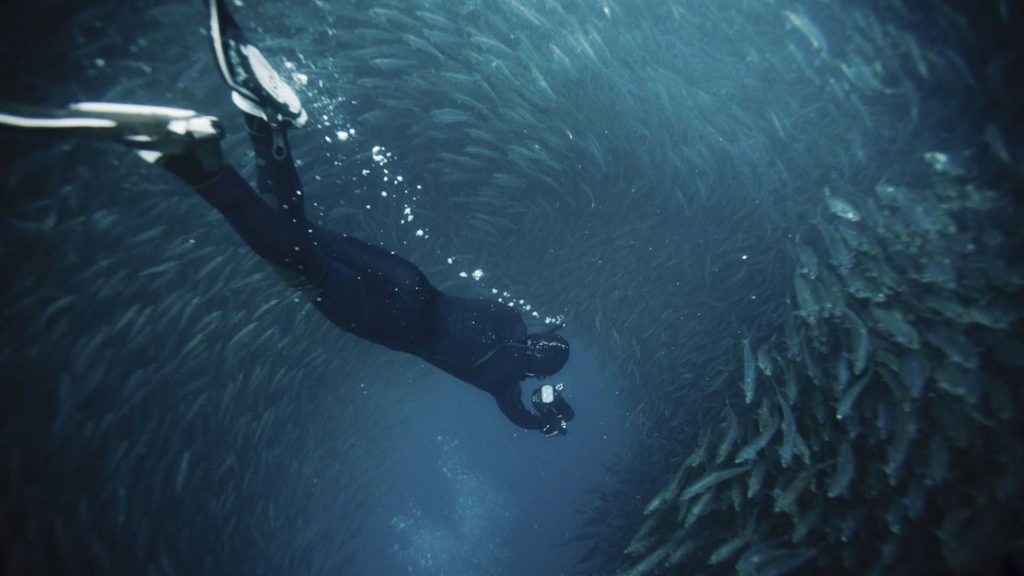Each year millions of sardines, in particular the South African pilchard ‘Sardinops Sagax’, migrate following the cool waters of the Agulhas Bank and move north towards Mozambique along the coast of South Africa. The run that sees millions of sardines group together occurs when a cold water current heads north towards Mozambique where it leaves the coastline and goes further east into the Indian Ocean.
Sardines typically tend to group together when they are threatened. This instinctual behaviour is thought to be a defence mechanism as sardines that travel on their own are at higher risk of being eaten by other species. Sardines are extremely sensitive to even the tiniest change in water pressure so when one fish in a shoal moves, the rest react. The cold water currents attract thousands of marine predators producing a type of ‘feeding frenzy’ including dolphins, sharks and whales that come to prey on the unsuspecting sardines.
The Sardine Run is a phenomenon that has been enjoyed by scientists and tourists alike. The event has become key for South Africa’s tourism and economy as many tourists come to watch. It also provides prime fishing opportunities. Tourists come from far and wide to watch this magnificent spectacle which can be enjoyed from under the water, the coast and even from space.
 Image courtesy of Natural World Safari
Image courtesy of Natural World SafariWhilst the migration usually takes place around June, the dates are not set in stone. In fact some years it does not happen at all. The number of sardines that took part in the run drastically dropped in 2013 and the sardines arrived later than usual. Whilst scientists believed that it may be the end of the run as they know it, by 2018 the run returned to normal procedures!
The migration itself still remains a mystery, although the most likely theory is the change in water temperature. The Sardines probably travel towards the equator to experience slightly warmer temperatures, and they seem to only bother moving if the water drops below 21 degrees.
Silly Sardines
Discover our print Silly Sardines inspired by the Sardine Run.




